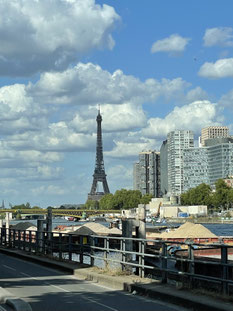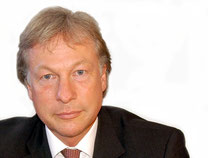
In recent months, articles and news captures about yellow-vest movements dominated newspapers all over the world when France was concerned, leaving a picture of instability and violence dominating in France.
More specifically, it identifies the national response of our neighbor to a necessary reform of the economic and social systems with the aim of strengthening France nationally and making it internationally competitive and thus attractive to foreign investors.

The state of the nation
The German entrepreneur associates France with the 35-hour week, a maximum employment protection and a retirement at age of 62 years, with high non-wage labour costs and a not entrepreneur-friendly tax legislation. To align these privileges of the French with the level of European neighbors is the aim of the package of measures implemented by Emmanuel Macron since the beginning of his term of office. It is understandable that this meets with only little sympathy of their own people.
These reforms, which have earned Macron the reputation of the "President of the Rich," show clear successes in the economy. In 2018, after stagnating for a long time, economic growth has risen to 2%, with a forecast of 2.3% in 2019. Unemployment has recovered from 10.7% to 8.7% within three years. Reforms in the French tax law such as the abolition of wealth tax (except for Real Estate) and the reduction of corporation tax from 33.33% gradually to 25% by 2022 contributed to this. To relieve the middle class, Macron announced in late April a significant reduction in income tax. The Labour law has been made more entrepreneur-friendly, e.g. through extended termination possibilities or restrictions on the level of compensation to pay for unfair dismissals. Work councils are not mandatory anymore in companies with minimum 50 but only from 100 employees. The adjustment of the retirement age to 64 years and an increase in weekly working hours are central reform issues of Macron; due to resistance from the yellow-vest movement decisions were postponed to the summer.

The strong increase in investment by foreign companies in 2018 shows that France is becoming popular. In the context of prevailing uncertainties caused by US economic policy and Brexit, France is becoming even more attractive. With a trading volume of almost 170 billion EURO in 2018, France is one of Germany's most important business partners. Proximity, simple market access, equal technological standards, excellent infrastructure and established networks in many areas speak for the move across the border. In addition, France attracts foreign companies with a wide range of investment incentives. Tax concessions, operating costs and availability of personnel vary considerably by region; in any case, if there is no mandatory location requirement, a detailed industry benchmark of the regions should be made in advance.
Where lies the Potential in the French market?
Despite a healthy nationalism, the French economy values precision, quality, reliability and on-time delivery of German products and services. Demand will continue to be strong in the traditional areas of mechanical engineering, construction, the automotive industry and logistics. But even newer industries such as IT, Cybersecurity, electronic and medical equipment, chemicals and plastics production have the best chances here. France is a leader in luxury goods, food, drug development and elite education. Unlike in Germany, young executives in elite universities such as ENA are traditionally encouraged.
German companies appreciate the quality of engineers and developers, infrastructures and the CIR (tax credits for research) in France as recently explored in the newly published work "Le Mittelstand Allemand en France" (Springer Gabler). Therefore they are increasingly conceiving and developing new products and services in France in addition to the distribution of their own German products. Open-minded entrepreneurs see the French branches as places of reflection and innovation. The French peculiarity of questioning existing processes again and again and thus breaking up rigid and antiquated organizational structures is recognized as an opportunity.
Germany and France, two different mentalities - but is it not true that often the unequal couples generate together strength, synergies and thus long-term success?
Yes, naturally! If your are interested in expanding into France, contact us at info@expandeers.com
